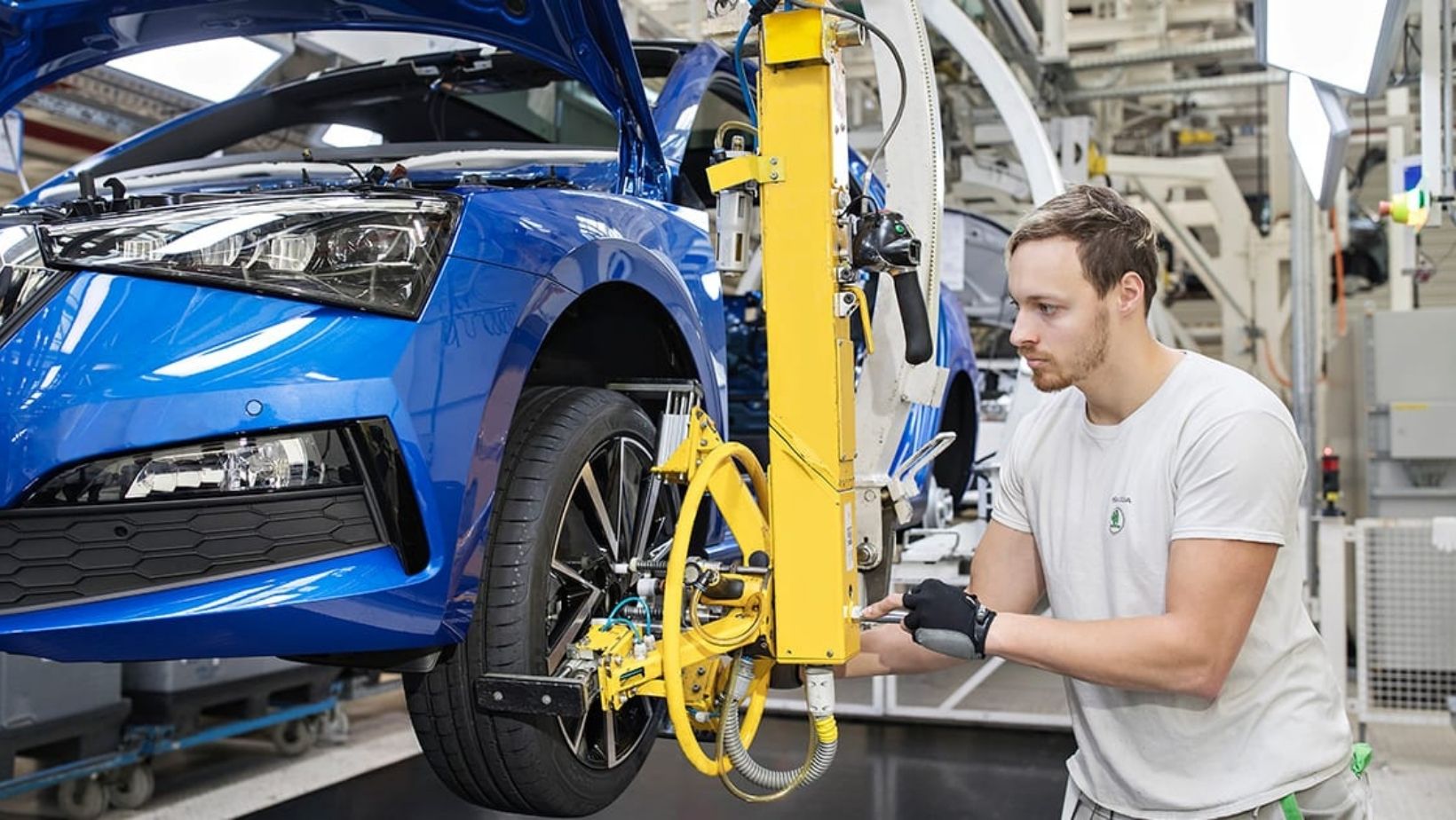“We have repeatedly said that the [EU’s climate] goals must be set in a way not to harm our industry,” Czech Prime Minister Andrej Babis grumbled recently in the presence of reporters. “It must be done reasonably, not based on ideology.”
Babis’s complaint that the target is “extremely ambitious” is not surprising. While rarely coming up with his own ideas, the populist billionaire seldom misses a chance to claim to Czech voters he’s pushing Brussels for a better deal for their country and its less privileged economy.
The transition to e-mobility is a particular issue. The auto sector is a lynchpin for the Czech economy, accounting for 26% of all industrial output and more than 9% of GDP.
Not only does the EU’s Fit 55 plan demand a huge shift for a key industry, but it cuts to the very heart of the Czech economic model adopted when communism fell. Based on cheap labor it has long been exploited by foreign investors, and remains in play today in many sectors, including autos.
Although the challenge is huge, in the face of the existential threat posed by the transition there’s no choice but to institute revolutionary change, industry figures insist.
It’s not the carmakers themselves at risk. These giant, well-resourced companies have long been preparing. Studies predict that the effect on employment at the original equipment manufacturers (OEMs) as they’re known will be moderate.
The Czech Republic hosts factories for three: Skoda, Hyundai and Toyota-Peugeot-Citroen (TPCA). All of them have launched at least some äll-electric vehicles (EV) or hybrid production.
At the same time, even at these plants ambition still lags a little. Skoda hopes for over 50% of European sales to be full-electric models by 2030. Its parent, Germany’s Volkswagen, is aiming for over 70%.
Skoda says it’s working to develop its home country into “an electromobility hub” and plans to make all three of its Czech plants EV production centers over the next decade.
Yet few know the details of the carmakers’ strategies. “The OEM’s plans are top secret,” Vojtech Severyn at the Association of the Czech Automotive Industry told DW.
The major suppliers are among the few that are in the loop. The Czech operation of Vitesco Technologies, the drivetrain subsidiary of German giant Continental, says that thanks to this its strategy is now “fully focused on electrified mobility” and it’s more than ready for the transition.
“[The OEMs] are transparent with their strategy and we are working closely with them to meet their demands,” spokesman Lubomir Tucek told DW.
But the situation is not so clear across the board. Many major suppliers are owned by foreign investors, meaning these strategic decisions are being made abroad.
“The Czech-based subsidiaries are now trying to persuade their international HQs that they can handle EV projects,” said Karolina Konicarova at state investment agency Czech Invest.
Yet it can be hard to make changes when the old ways are still working. Currently, it’s estimated that just 10% of the cars rolling off Czech production lines are EVs.
Companies that haven’t moved past the old economic model based on cheap labor performing basic tasks are particularly at risk, says Petr Knap, lead partner for the automotive sector at consultancy EY. he says.
“For some, labor arbitrage is still their main advantage. You have to worry about these groups,” said Knap. “They will need to shift east or undergo brutal automation. The denial stage is over.”
-
NEWSLETTER
Subscribe for our daily news












